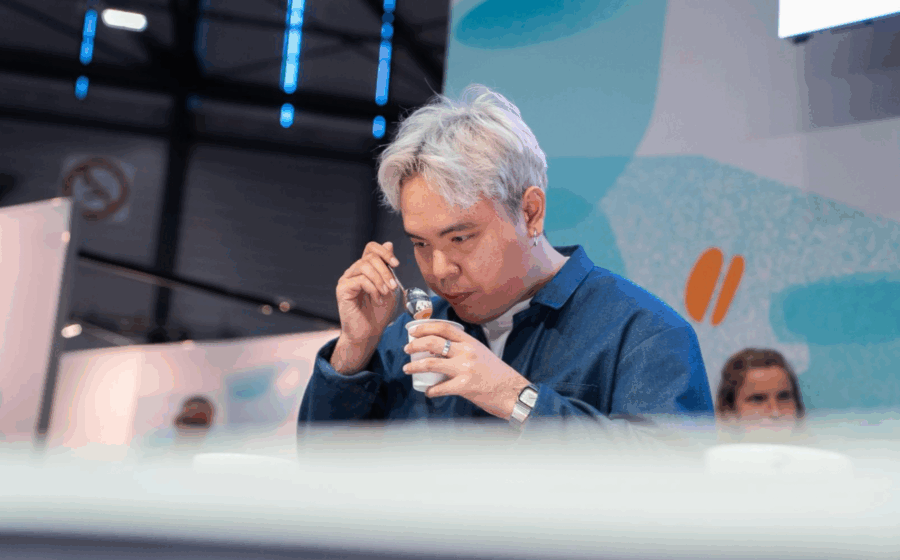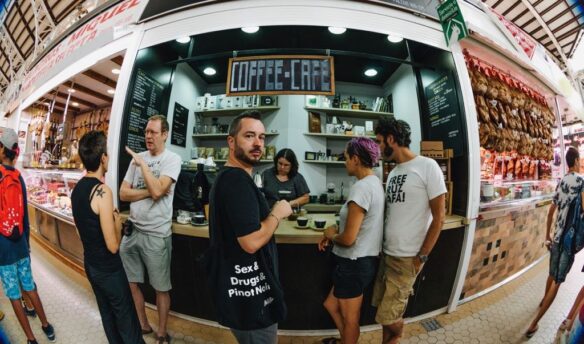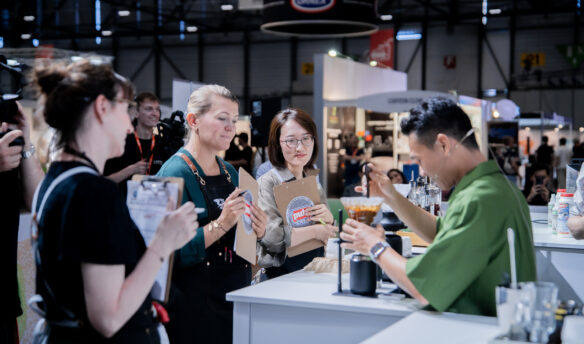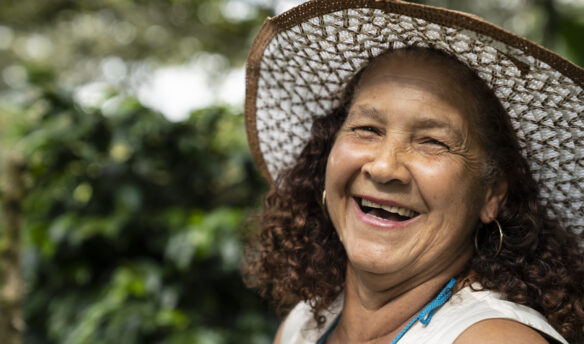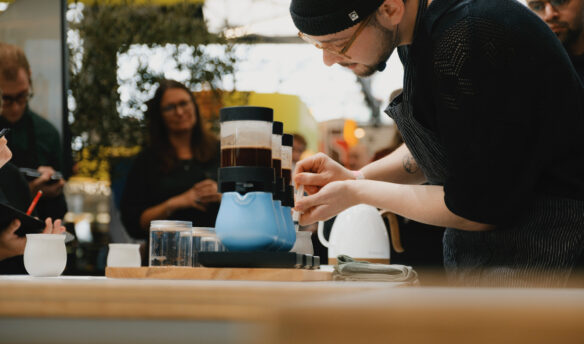There are seven competitions that make up the World Coffee Championships, which collectively test a variety of coffee-related skill sets. In June, four of the seven competitions took place in Geneva, Switzerland.
Two of them—the World Cup Tasters Competition and the Cezve/Ibrik Competition—still fly under the mainstream radar compared to heavy-hitters like the World Barista Championship. But for those paying attention, they demonstrate just how wide-ranging today’s coffee industry can be—and reflect cultural traditions that stretch well beyond the espresso bar.
This year, France’s Charles Boyenval claimed the title of World Cezve/Ibrik Champion. Commonly known as “Turkish coffee,” the cezve method involves brewing with a small, long-handled copper pot. It’s arguably the original coffee preparation method, dating back to the 16th century Ottoman Empire and predating espresso and modern brewing techniques. The Cezve/Ibrik Championship asks competitors to brew the best cup they can with the traditional vessel—and then use it to make a signature drink.
Meanwhile, Thailand’s Chatchalerm “Boss” won the World Cup Tasters Championship. The competition invites participants to identify which coffee out of a set of three is different, using a method called triangulation.
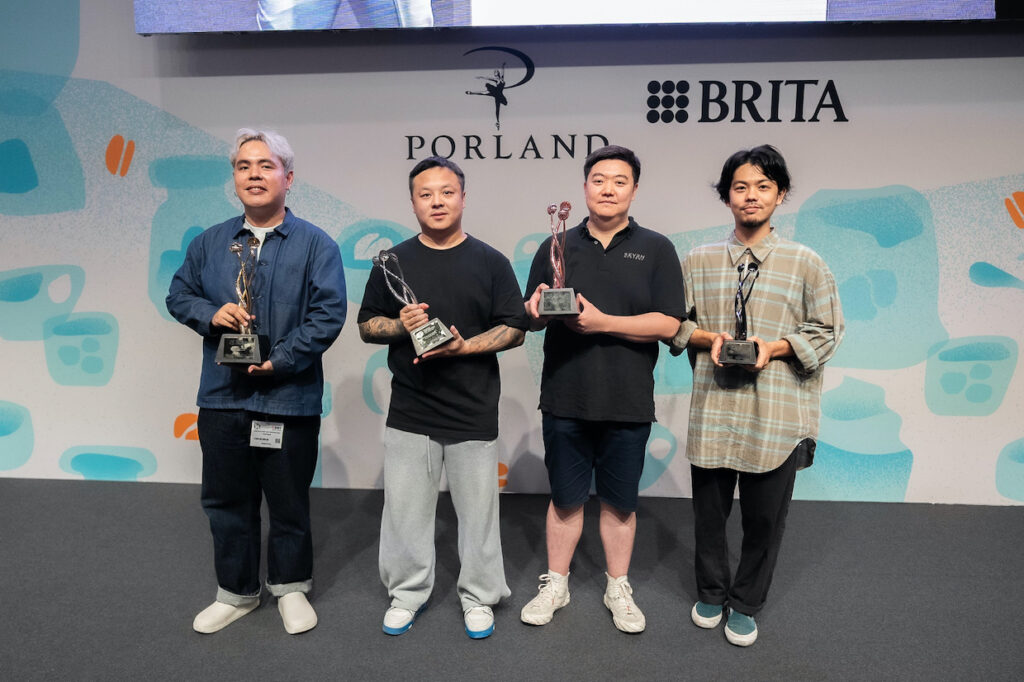
The championship showcases the sensory precision of cupping, a tasting practice industry professionals use to identify defects and evaluate quality in a coffee. It’s important for tasters to develop their palates so they can communicate clearly about a coffee, ensuring transparent valuation and trust across the supply chain.
Following the championships, Fresh Cup chatted with both winners about their respective competitions. We discussed coffee’s ever-evolving identity—and how brewing and tasting beyond the mainstream reveals the industry’s varied cultural influences.
Charles Boyenval, 2025 World Cezve/Ibrik Champion
At his international competition debut, Charles Boyenval won the World Cezve/Ibrik Championship. The Bordeaux-based Frenchman is a certified Specialty Coffee Association trainer and a service technician for MaxiCoffee. He is also the third French coffee professional in a row to take home the title, following Pierre de Chantérac in 2023 and Jordan Tachnakian in 2024.
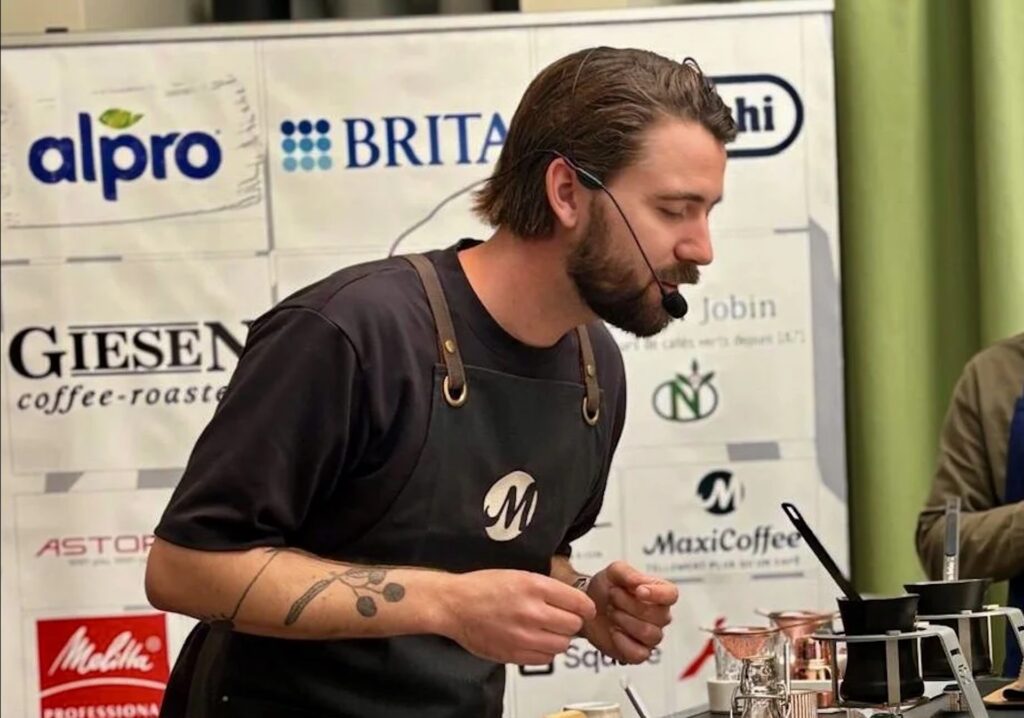
While the cezve/ibrik method remains central to daily life in the Middle East, Central Asia, and parts of Africa, it also has deep roots in European regions historically shaped by the Ottoman Empire—such as the Balkans, Greece, Turkey, and Ukraine. Though Boyenval was raised outside of these cultural contexts, he approaches the method with intention and respect, fully aware of its historical and emotional significance across generations and geographies.
How did you decide to compete in the Cezve/Ibrik Competition? What drew you to this method of brewing?
Since I entered the specialty coffee world, I have always been fascinated by the diversity of brewing methods. The first time I saw a cezve/ibrik being used was by Pierre de Chantérac during the 2023 CIC [Cezve/Ibrik Championship], and it really caught my attention.
I was drawn to how it combines technical skill with a deep sense of tradition. I began focusing on this method about a year ago while judging the French Brewers Cup. After the World of Coffee Copenhagen in 2024, witnessing two consecutive world champions from France in this category inspired me, and I felt encouraged to compete myself.
For the 2025 Championship, I trained intensively for five months, experimenting with different coffees, grind sizes, and extraction temperatures while refining every detail. My goal was to demonstrate that cezve is more than just a technique; it’s a full sensory experience and an art form.
Your championship routine was praised for its storytelling. How did your background shape how you approached brewing with the method?
The intercultural aspect I wanted to express in my routine stems from my personal experiences living in France, Mauritius, and Réunion Island. I spent three years as a child in Mauritius and, more recently, a year in Réunion. The flavors I incorporated into my recipe reflect the tastes and memories of the fruits I encountered there.
Through my travels, I’ve come to understand that coffee often serves as an excuse to gather socially, connect with others, and share stories, with flavor sometimes taking a backseat.
I brought in French savoir-faire [“know-how” or skilled finesse] by creating a “liquid pastry” in my signature cezve, using ingredients like sweet potato, pitaya koso [a fermented dragonfruit drink], and aquafaba [the liquid from canned chickpeas, used as a vegan egg white substitute] infused with passion fruit.
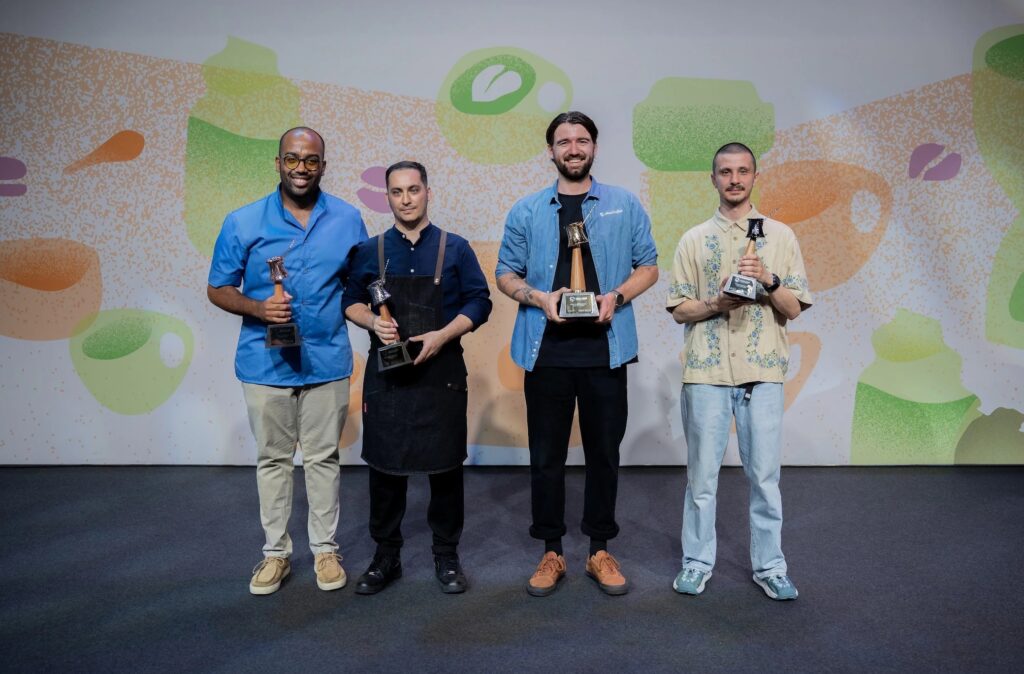
My broader intention was to combine this brewing method with strong cultural roots—embodying the spirit of hospitality and deep respect for tradition that the cezve represents—and to blend it with the diverse influences that shaped my journey.
How do you think France can both drive innovation in the specialty scene and ensure it respectfully acknowledges this method’s Ottoman and North African roots—especially given France’s colonial past?
The cezve/ibrik method is a living heritage shared across a wide range of cultures, spanning the Middle East, North and East Africa, the Balkans, the Caucasus, and Central Asia—each region has its way of preparing, sharing, and honoring this traditional brewing method.
In the context of specialty coffee, and especially here in France, we must also recognize our colonial past in many of these regions: Algeria, Morocco, Tunisia, Lebanon, and Syria. Respecting them means not just admiring the craft, but also understanding its roots and the legacy it carries.
To innovate without memory is to build without roots. As a trainer in the coffee world, I see myself as a channel through which traditions can be learned—without pretending like I know it all—with respect, awareness, and intention.
Do you feel your win could help expand appreciation for the cezve?
I really hope so. A lot of people only know cezve brewing as “Turkish coffee,” and haven’t experienced it prepared with real attention to quality.
What I’m doing—just like the previous CIC champions—shows that you can pair this tradition with a modern, precise approach. Some French specialty cafes are starting to offer cezve or organize tastings, and I’d love to see more. I also hope more baristas get involved in this competition category, which was already happening at the French nationals this year. I’ll keep doing my part—training others and showing why the cezve deserves to stand alongside other respected brew methods.
The goal is to make the method more accessible. I hope to demystify the cezve and help people realize how versatile and rewarding it can be.
Chatchalerm “Boss,” 2025 World Cup Tasters Champion
Chatchalerm Lertanekwattana, who goes by “Boss,” made history by becoming the first Thai competitor to win the World Cup Tasters title. He was one of only six competitors to score 8/8 in the semis fast enough to reach the finals—and he went on to win the title.
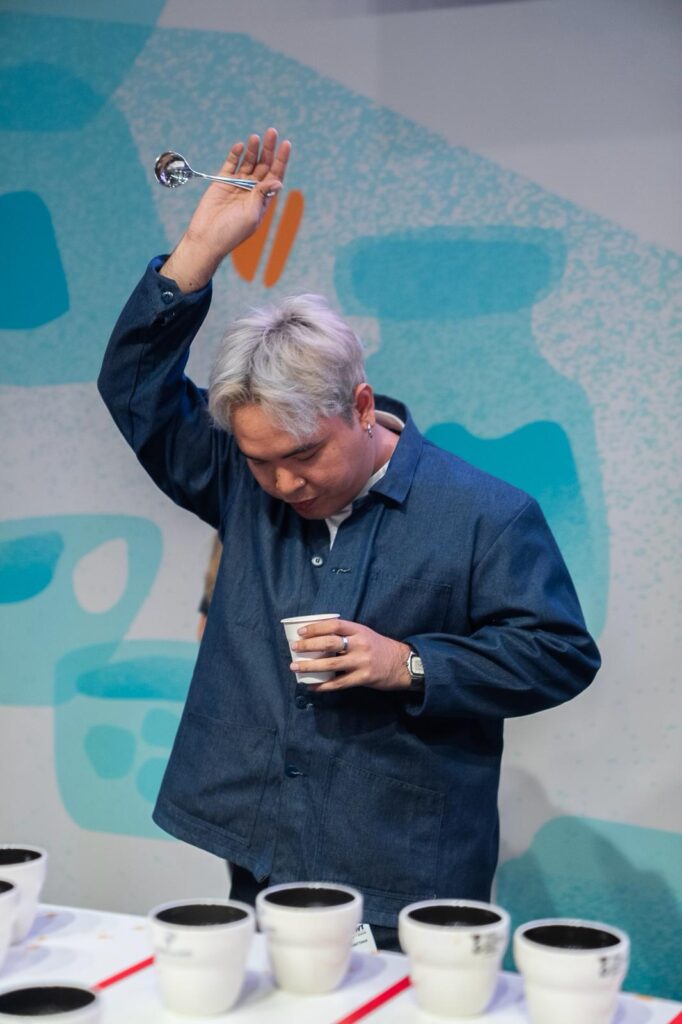
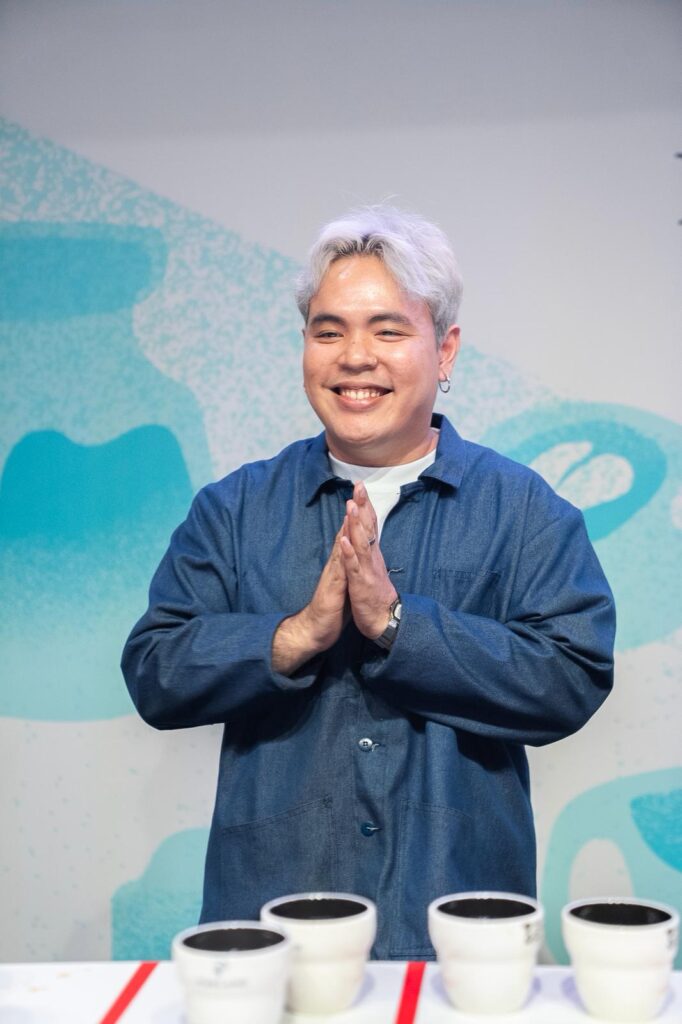
Lertanekwattana’s sensory journey began at age 15, when his mother noticed his refined palate—a moment that sparked his drive to compete. That path led him to win Thailand’s national Cup Tasters Championship, and later represent his country on the world stage.
He is currently based at the Central World branch of Roots Coffee in Bangkok, and has been working in coffee for about five years. Today, he leads sensory training at the shop and hopes to use his world title to host tasting workshops across Southeast Asia.
How do you feel about winning the World Cup Tasters Championship?
I still feel like I’m dreaming. I’m incredibly happy, but this achievement isn’t just mine; it belongs to my entire team of friends, colleagues, and the wider coffee community who supported me. Especially Tanupon Kanjanajirawut and Ling Pornnapa Khankaeo, who not only helped me train but were the backbone of my support system.
I feel deeply honored to be recognized at this level and to make history for the Thai coffee scene. I hope this victory inspires anyone chasing a dream, as well as competitors who aspire to succeed. Please don’t give up—keep pushing forward!
You once shared that people noticed your talent for tasting when you were just 15. Could you tell us more about that moment and how it influenced your path into coffee?
Thailand has a rich food culture, and since my childhood, I have loved trying different dishes. I often guessed the ingredients, flavors, and spices [in dishes], and I especially enjoyed spicy food. I started drinking coffee in high school—it was just instant coffee at the time.
Before entering the coffee industry, I worked with my family. However, one night, I felt a strong desire to pursue my true passion. When a friend of mine won a coffee championship in 2019, I reached out to ask if he knew of any job openings in a cafe. That’s how I began my journey as a barista.
The more I learned about coffee, the deeper my love for it grew, particularly for the flavor wheel [a tool that lists different coffee flavors]. It opened my mind and changed everything for me.
Your final round stood out for its speed and consistency. How did you train for the competition?
For me, everything begins with taste; it’s the foundation of everything. However, I also place great importance on mental training. A positive mindset and good mental health are vital because you can’t perform well if your mind isn’t calm.
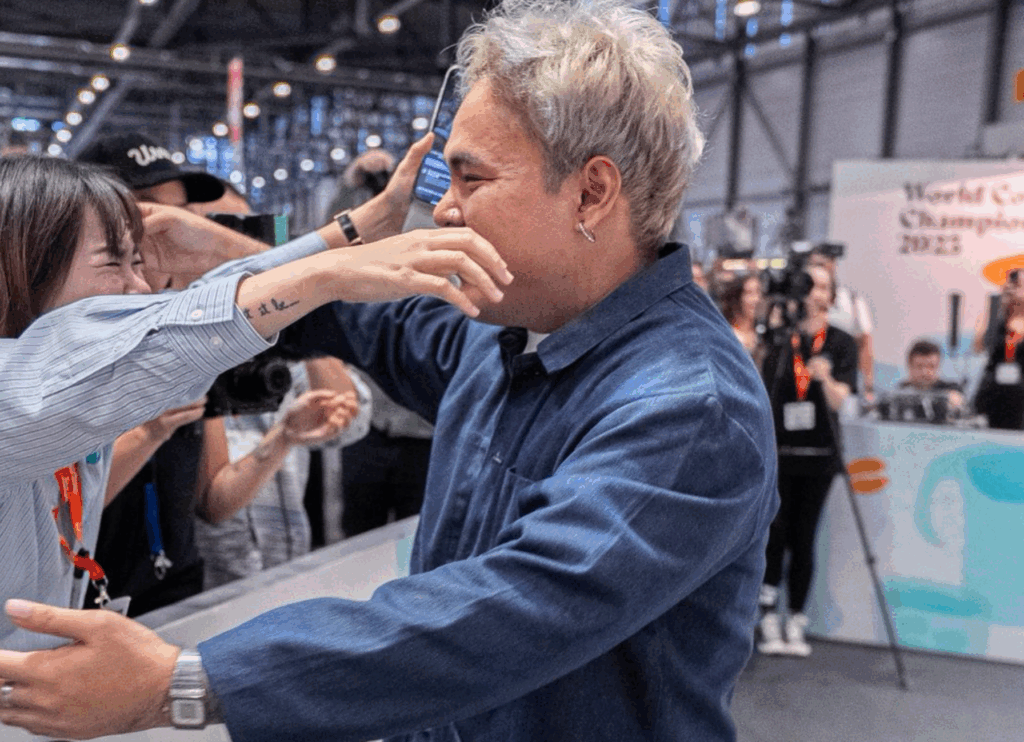
In the Cup Tasters Competition, memory plays a crucial role, especially when under pressure. I trained about six days a week, focusing not just on taste but also on enhancing my focus and concentration. I always strive to clear my mind and concentrate solely on the cups in front of me. This time around, in the final rounds, I truly felt the difference—I remained calm, which helped me stay sharp and consistent.
Thailand is also a coffee-producing country. What do you wish more people around the world understood about Thai coffee?
Coffee is more than just a fruit; it embodies the culture, lifestyle, and environment of the region it comes from. In Thailand, we are experimenting with various arabica varieties and innovative processing methods. Each cup of coffee carries a rich story that begins on the farm and ends with the drinker. I hope that more people around the world will discover Thai coffee and appreciate its beauty.
Now that you’re a world champion, what’s next?
I want to share what I’ve learned from my experiences, particularly about training and developing a competitive mindset. When I first started, I was eager to compete but didn’t know how to begin. I want others to understand that while it isn’t easy, it is achievable. With consistent training and by listening to your body and mind, you can succeed. I hope to support more young people and help enhance sensory knowledge throughout our region.
Interviews were edited for length and clarity.



